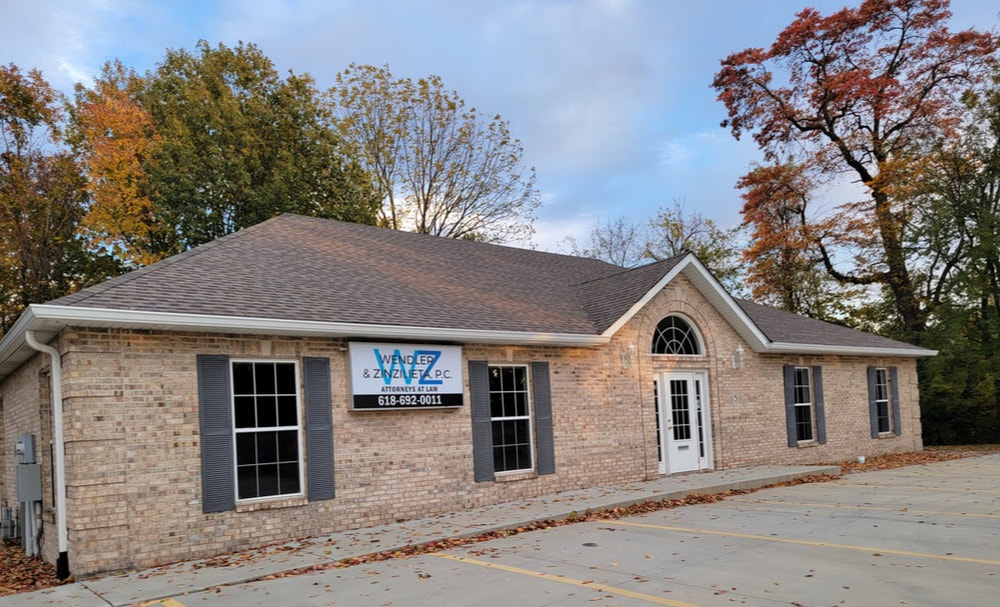|
By: Angie Zinzilieta, Partner
Generally, common carrier status is an exception to the Tort Immunity Act. The purpose of the Tort Immunity Act is to protect local public entities and public employees from liability arising from governmental operations. Village of Bloomingdale v. CDG Enterprises, Inc., 196 Ill. 2d 484, 490, 752 N.E.2d 1090, 256 Ill. Dec. 848 (2001). It does this by granting immunities, but it does not create duties. Id. Importantly, the existence of a duty and the existence of an immunity are separate issues. Id. Only after a court determines that a duty exists does it address whether the Tort Immunity Act provides immunity for a breach of that duty. Id.; see also Doe v. Sanchez, 2016 IL App (2d) 150554, ¶¶ 37-38, 402 Ill. Dec. 697, 705-06, 52 N.E.3d 618, 626-27. The Tort Immunity Act does not affect “affect the liability, if any, of a local public entity or public employee, based on . . . operation as a common carrier; and this Act does not apply to any entity organized under or subject to the ‘Metropolitan Transit Authority Act’. . . .” See 745 ILCS 10/2-101 (current through 2016). As defined by Illinois courts, a "common carrier" is "one who undertakes for the public to transport from place to place such persons as choose to employ him for hire." Marvin v. Chi. Transit Auth., 113 Ill. App. 3d 172, 178 (1983). A common carrier was one that would serve all of the public alike, whereas a private carrier would serve only certain persons by special agreement in particular instances. Doe v. Sanchez, 2016 IL App (2d) 150554, ¶ 11, 402 Ill. Dec. 697, 700, 52 N.E.3d 618, 621. Long-standing authority in Illinois has held that a common carrier is “one who undertakes for the public to transport from place to place such persons or the goods of such as choose to employ him for hire. A common carrier 'undertakes for hire to carry all persons indifferently who may apply for passage so long as there is room and there is no legal excuse for refusal.' . . . The definitive test to be employed to determine if a carrier is a common carrier is whether the carrier serves all of the public alike. A private carrier, by contrast, undertakes by special agreement, in a particular instance only, to transport persons or property from one place to another either gratuitously or for hire. A private carrier makes no public profession to carry all who apply for carriage, transports only by special agreement, and is not bound to serve every person who may apply." Green v. Carlinville Cmty. Unit Sch. Dist. No. 1, 381 Ill. App. 3d 207, 211, 320 Ill. Dec. 307, 310-11, 887 N.E.2d 451, 454-55 (2008). However, the Downstate Public Transportation Act defines “public transportation” as “the transportation or conveyance of persons by means available to the general public including groups of the general public with special needs.” 30 ILCS 740/2-2.05 (current through 2016); see also People v. Jerome S. (In re Jerome S.), 2012 IL App (4th) 100862, ¶ 16. In Browne v. SCR, SCR provided paratransit services to disabled persons only pursuant to written contracts. SCR's services have never been available to the general public. Pursuant to SCR's contract with the CTA, SCR was to provide services only to (1) disabled persons certified under the ADA and (2) who placed a reservation with SCR for a specific trip or arranged for a pre-scheduled subscription service. SCR would then subject each trip request to a screening process where an SCR employee would check the requesting rider's computer file before scheduling a trip to determine if the passenger was eligible not only for paratransit services but also for the specific ride requested. SCR could and did refuse requests for trips from disabled persons who were either not properly certified by the CTA, who were not enrolled in the CTA's Special Services Program, or who were not eligible for the specific ride requested. SCR also declined requests for the following reasons: (1) the form of payment was unacceptable; (2) SCR did not have the specific type of vehicle needed to transport the individual given the individual's specific disability, handicap and/or needs; (3) there were not enough vehicles in SCR's fleet to accommodate the request for the trip at the time it was made; (4) the pick-up location or the destination was too far or was too inconvenient; or, (5) the individual made specific requests with regard to the manner or method of transport that SCR deemed to be unsafe. See Browne v. SCR Med. Transp. Servs., 356 Ill. App. 3d 642, 644, 292 Ill. Dec. 594, 596-97, 826 N.E.2d 1030, 1032-33 (2005) The Court ruled that “. . . SCR did not serve all of the general public. SCR served only those individuals who met its eligibility requirements. SCR also could decline to serve anyone based on numerous factors such as location and availability of medical transport vans. Because SCR ‘makes no profession to carry all who apply for carriage’ and ‘is not bound to serve every person who may apply,’ we find that SCR was not a common carrier at the time of the assaults.” Browne v. SCR Med. Transp. Servs., 356 Ill. App. 3d 642, 647, 292 Ill. Dec. 594, 599, 826 N.E.2d 1030, 1035 (2005). The Court also held: The question of whether a medical transport van is a common carrier has not yet been addressed by this court. However, we can look to similar case law for guidance. In Rockdale, this court addressed the issue of whether a school bus was a common carrier. In that case, the plaintiff was assaulted by another student as he was transported to school. The bus company was operating pursuant to a contract with the school district to transport special education students at an agreed upon rate and for an agreed upon period of time. The contract did not provide for the transportation of any additional passengers or cargo. This court found on appeal that the bus company was not a common carrier because it did not provide services to the general public. The court noted that the bus company neither advertised its services to the general public nor transported indiscriminately all members of the public who applied. The court also noted that the bus company provided a specific service to a specific group of people because it only transported special education students between home and school by specific agreement. In conclusion, the court determined the bus company was acting as a private carrier and not a common carrier when the assault occurred. Rockdale, 287 Ill. App. 3d at 796 See Browne v. SCR Med. Transp. Servs., 356 Ill. App. 3d 642, 647 (2005). In Doe v. Sanchez, the Court held: “All parties transporting students owed the students the same duty of care. Regardless of whether a party was a public school district or a private entity, the party owed the students the highest duty of care, the same as if it were operating as a common carrier.” Doe v. Sanchez, 2016 IL App (2d) 150554, ¶¶ 13-14; see also Rockdale School District, 287 Ill. App. 3d at 794-95 (holding that the school district, as principal of the agent school busing company, was not acting as a common carrier); Browne, 356 Ill. App. 3d at 647-48 (holding that medical-transportation service was not a common carrier); Green, 381 Ill. App. 3d at 213 (holding that a school district transporting students owed the students the same standard of care as a common carrier); Garrett, 139 Ill. App. 3d at 575 (holding that a school district engaged in student-transportation services should be held to same standard of care as a common carrier; school district had duty to select a discharge point that did not needlessly expose students to serious safety hazards); see also Van Cleave v. Illini Coach Co., 344 Ill. App. 127, 129, 100 N.E.2d 398, 399 (1951) (“we do not deem it to be controlling whether the defendant was a common carrier or a private carrier, for it is our opinion from the facts in this case that it was the duty of the defendant to operate the bus with the highest degree of care consistent with the practical operation of the bus”). However, in Doe v. Rockdale, the Court found “that the School District was not operating as a common carrier for the purposes of the ‘common carrier’ exception to the Tort Immunity Act.” Doe v. Rockdale Sch. Dist., No. 84, 287 Ill. App. 3d 791, 795 (1997). In its analysis, the Court stated: Under the terms of the agreement between the School District and Crawford, Crawford agreed to transport the School District's special education students at an agreed upon rate and for an agreed upon period of time. The contract did not provide for the transportation of any additional passengers or cargo. It is not alleged that other passengers or cargo were in fact transported by the defendant or Crawford. Plaintiff made no allegation that either Crawford or the School District held itself out to the public as available to transport all applicants who might apply for transportation. The allegation is merely that Crawford was a common carrier, and as agent of the School District did transport special education students to and from SMA therapeutic school and their homes. See Doe v. Rockdale Sch. Dist., No. 84, 287 Ill. App. 3d 791, 794 (1997). Oddly, given the above-mentioned case law, common carrier status seemingly does not protect those most vulnerable in our society. For example, a transportation service for senior citizens and the disabled would likely not be considered a common carrier as the bus only transports the elderly and disabled. In a case very similar, Browne v. SCR, the Court held that the medical transport van, which is very similar to a paratransit shuttle or bus, was not a common carrier. In summary, Illinois law is strange on this issue. If you've been hurt using public transportation, give Wendler Law, P.C., a call at (618) 692-0011. *** Nothing in this blog post should be construed as legal advice.
4 Comments
|
LOCATION |
|

 RSS Feed
RSS Feed

